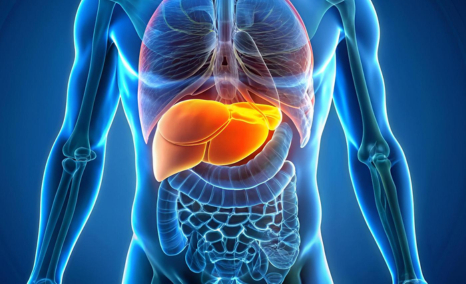
Beyond Supportive Care: How New Drugs are Shaping Metabolic-associated Steatohepatitis (MASH) Treatment Outcomes

May 25, 2021
Table of Contents
Telix Pharmaceuticals reported the results from the TRALA trial (Targeted Radiotherapy for AL Amyloidosis), a Phase I/IIa trial evaluating the safety and toxicity of TLX66 as the sole bone marrow conditioning agent prior to autologous hematopoietic stem cell transplantation (HSCT) in patients with AL amyloidosis.
The results demonstrated a favourable safety profile and well-tolerability in all nine patients enrolled in the trial.
Article in PDF
Amyloidosis is a rare disease characterized by faulty plasma cells in the bone marrow leading to a production of an abnormal protein called ‘amyloid’ accumulation in the organs of the body along with a scarcity of antibodies in response to infection. Key companies working in the domain include Caelum Biosciences, Spectrum Pharmaceuticals, Millennium Pharmaceuticals, besides Telix Pharmaceuticals.
Slow and steady wins the race. Takeda, for several years, has put its faith in its Dengue vaccine, running studies and trials at a slow, steady pace and now it may finally intensify the competition in the Dengue vaccines market.
The company unveiled the first public presentation of the long-term safety and efficacy results from the ongoing pivotal Phase III Tetravalent Immunization against Dengue Efficacy Study (TIDES) trial of its dengue vaccine candidate TAK-003. The study demonstrated that the vaccine provided 83.6% protection from the need for hospitalization and 62% overall efficacy against the virus.
If approved, it can prove to be a major setback for Sanofi’s Dengvaxia, whose record has been pretty much not clean after it was proved that the vaccine had the potential to cause severe dengue cases in those who have not been infected before, thus vastly limiting its patient pool.
However, the troubles of Sanofi served as a lesson for Takeda, as the company, before even beginning the assessments knew what not to do.
Innovent Biologics announced the dosing of the first patient with pemigatinib (IBI375) in a global Phase 3 clinical trial for the treatment of unresectable or metastatic Cholangiocarcinoma (CCA) in China.
Pemigatinib is a fibroblast growth factor receptor 1/2/3 (FGFR1/2/3) inhibitor, and the trial aims to investigate the efficacy and safety of pemigatinib versus gemcitabine plus cisplatin in first-line treatment of participants with unresectable or metastatic cholangiocarcinoma with a fibroblast growth factor receptor 2 (FGFR2) rearrangement.
Cholangiocarcinoma is a rare malignant tumour that originates from biliary epithelium cells. According to DelveInsight’s Cholangiocarcinoma epidemiological analysis, total CCA incidence was recorded to be approximately 73,442 in 2020 in the 7MM, which is expected to increase further during the study period 2018-30. However, there is a lack of proper diagnosis and treatments in the space. Key companies such as Agios Pharmaceuticals, AstraZeneca, Merck/EMD Serono, QED Therapeutics, Acelarin, Lexicon Pharmaceutical, among others are working to push the market growth ahead with several novel therapies under investigation.
Shares of NGM Biopharma went crashing down after the firm announced the failure of its engineered analog of the human hormone FGF19, aldafermin for Non-alcoholic steatohepatitis. The drug was in the Phase IIb ALPINE 2/3 trial for NASH with stage 2 or 3 liver fibrosis when all the hopes from the drug toppled down after it failed to hit the primary endpoint.
Earlier, Genfit’s elafibranor failed in the Phase III NASH trial, Gilead Sciences’ selonsertib also flopped before seeing the daylight. Boehringer Ingelheim and Pharmaxis’ BI 1467335, Gilead’s firsocostat and cilofexo, are some of the failed candidates in the NASH market. The hopes from Intercept Pharmaceuticals and its drug obeticholic acid (OCA) rose; however, it quickly was crushed after the USFDA rejected it.
Failing drugs in the pharmaceutical market is a common sight, with several failing before even entering the clinical stages; and however, while talking about the NASH market, the list is quite lengthy, with drugs failing back to back.
Thus, the NASH market lacks approved therapies and continues to attract pharmaceutical and biotech companies to come up with standard novel therapy and become the trailblazer.
Article in PDF


